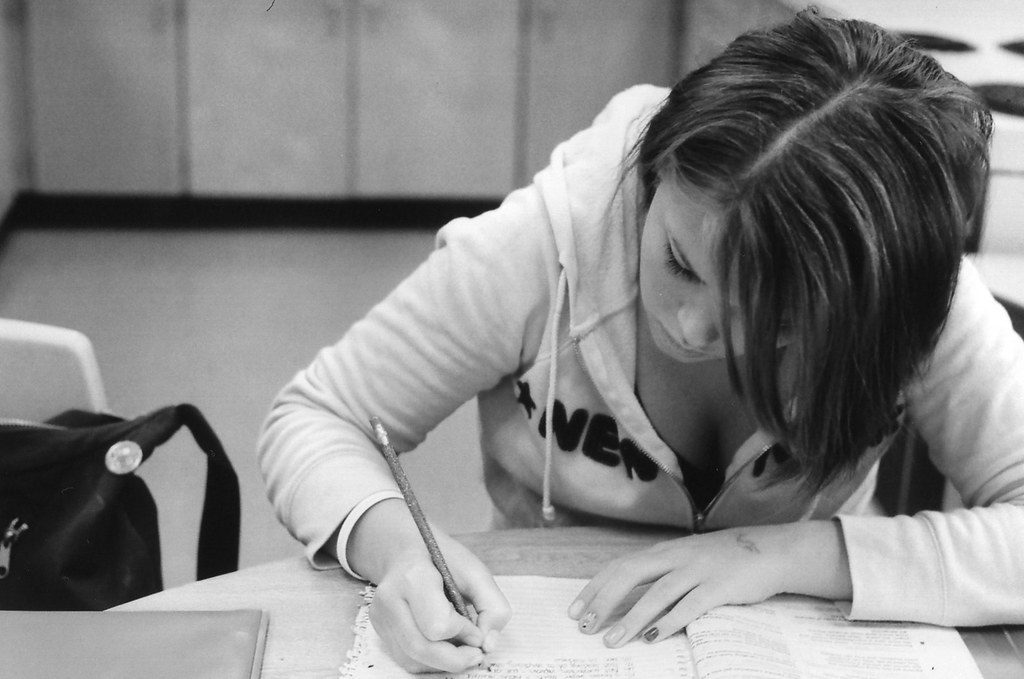This was never how we imagined our spring semester.
As the world is being rocked by COVID-19, the majority of my peers are now experiencing a new and different kind of college — studying from home and isolated from friends, fellow students and professors. The entire academic system, especially students, is being forced to reevaluate its priorities and motives.
This disruption presents us with an opportunity to reconsider our approach to education and return to the original purposes of college. College is not meant to be about grades but actual learning. It’s not meant to be about empty socializing but true connection.
Learning v. Grades
Today, almost everything that makes a “classic college experience” has been stripped away, at least for now. No more club meetings, study groups or walks to class. It can seem like the only things remaining are the grades we earn.
But college was never designed to be about grades.
In fact, when universities originally started, grades didn’t even exist. Up until the introduction of grades at Yale University in the late 18th century, almost everything was measured on a pass/fail basis.
Research even shows that focusing on grades can reduce critical thinking. The current situation with COVID-19 did not create this problem but it underscores it. Many students have petitioned for pass/fail grading systems during the pandemic, which is actually better for students.
Grades were originally designed to measure the quality of student output, but they aren’t a perfect measure of learning. On some of my assignments that earned As, I forgot most of the information by the next semester. Yet I remember exactly what mistake caused that biology experiment to derail sophomore year. We often learn the most from our worst grades.
As we shelter in place, we might be tempted to think that we’re far away from learning since we’ve associated learning with classrooms, labs and libraries. But we still have access to everything we need to learn, because learning is a product of engagement.
If we take the time to invest, we can learn more now than ever. Students everywhere are learning to set up a study group via FaceTime and schedule calls with professors. Personally, I’ve started using my extra time at home to read supplementary textbooks, do additional research and pour into my final projects.
Socializing v. Community
One of the primary ways we learn is through other people. Our textbooks present us with knowledge, but it’s our professors and peers who guide our thinking.
The saying “Show me your friends and I’ll show you your future” has a point. We learn from the people we surround ourselves with.
Unfortunately, a lot of college friendships are built by happenstance, seating assignments, convenience or random roommate drawings. We can fall into the trap of letting these relationships serve only the purpose of distraction – never going deeper than the latest memes.
But college should be about authentic connection instead of surface-level socialization.
In connecting with others, we learn to become our genuine selves – what researcher and professor Brené Brown calls “belonging”.
As we shelter in place, away from the dorms and dining halls where we look for connection, it can feel like all that’s left are Snapchat streaks and Instagram stories.
But if we look closer, this disruption invites us to refocus on our relationships. With a little extra effort, we still have everything we need to prioritize genuine connection. I’ve started connecting with my friends by scheduling FaceTime calls, learning a skill with them, reading books and discussing them, listening to the same podcasts and asking challenging questions to take the relationship to a deeper level.
It may look different, but this is the kind of connection that college is supposed to be about — intentionally built friendships not haphazard acquaintances.
Our semester looks radically different than anyone expected but it presents us with a unique opportunity. We can switch our focus from earning grades to really learning. We can turn from empty socializing to authentic connection.
If we intentionally engage, we can use this time to become better students and better people, creating together a new and different kind of college – one focused on learning and community.
Lila Sadler is a guest writer
